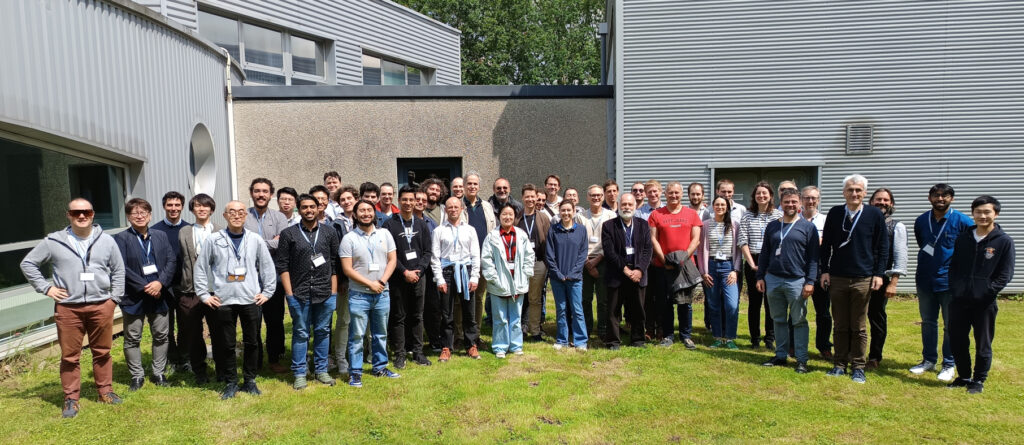



LTP 2024 Opening workshop
Workshop « Turbulent Flows »

The aim of this workshop is to discuss approaches to turbulent flows which go beyond Kolmogorov equilibrium cascades by taking explicit account of non-stationarity and/or non-homogeneity either in a statistical sense or in the local sense of dynamic intermittency. Kolmogorov equilibrium describes the spatio-temporal average of statistically homogeneous isotropic turbulence. Non-equilibrium is manifest in fluctuations around this equilibrium either in time for spatial averages or in space for time averages and in deviations from such equilibrium by the presence of statistical non-homogeneity and/or non-stationarity/turbulence decay. Non-equilibrium is therefore present in all turbulent flows which implies that various turbulent energy transfer and/or production mechanisms in both scale and physical spaces need to be taken into account to understand turbulence physics, including turbulence cascades, turbulence dissipation and intermittent fluctuations. Different universality classes of non-equilibrium may need to be defined by considering the presence or absence of different types of large-scale coherent structures and different regions of flows in terms of turbulence production, turbulence transport and proximity to the turbulent/non-turbulent interface which is an extreme but ubiquitous instance of local non-homogeneity/intermittency/near singularity. There are consequences for important leading order properties of a raft of boundary-free turbulent flows including growth rates of turbulent shear flows such as turbulent wakes, jets and mixing layers where approaches based on momentum and force balances need to be confronted with approaches where turbulent energy balances and therefore turbulence dissipation play a leading role. There are also consequences for wall flows such a turbulent channel flows and various types of turbulent boundary layers which need to be elucidated and where both momentum and energy transfers, as well as wall-blocked coherent structures, are key.
Workshop « Turbulent Flows »

The aim of this workshop is to discuss approaches to turbulent flows which go beyond Kolmogorov equilibrium cascades by taking explicit account of non-stationarity and/or non-homogeneity either in a statistical sense or in the local sense of dynamic intermittency. Kolmogorov equilibrium describes the spatio-temporal average of statistically homogeneous isotropic turbulence. Non-equilibrium is manifest in fluctuations around this equilibrium either in time for spatial averages or in space for time averages and in deviations from such equilibrium by the presence of statistical non-homogeneity and/or non-stationarity/turbulence decay. Non-equilibrium is therefore present in all turbulent flows which implies that various turbulent energy transfer and/or production mechanisms in both scale and physical spaces need to be taken into account to understand turbulence physics, including turbulence cascades, turbulence dissipation and intermittent fluctuations. Different universality classes of non-equilibrium may need to be defined by considering the presence or absence of different types of large-scale coherent structures and different regions of flows in terms of turbulence production, turbulence transport and proximity to the turbulent/non-turbulent interface which is an extreme but ubiquitous instance of local non-homogeneity/intermittency/near singularity. There are consequences for important leading order properties of a raft of boundary-free turbulent flows including growth rates of turbulent shear flows such as turbulent wakes, jets and mixing layers where approaches based on momentum and force balances need to be confronted with approaches where turbulent energy balances and therefore turbulence dissipation play a leading role. There are also consequences for wall flows such a turbulent channel flows and various types of turbulent boundary layers which need to be elucidated and where both momentum and energy transfers, as well as wall-blocked coherent structures, are key.
